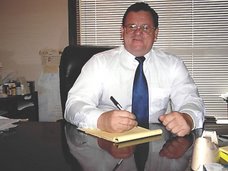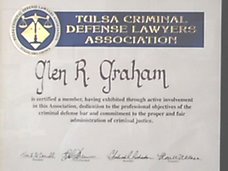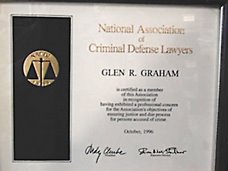See: United States v. Gonzalez-Lopez, No. 05-352 (June 26, 2006):
Defendant has right to paid counsel of choice and it is not harmless error to deny the same, it is reversible error.
A trial court's erroneous refusal to allow a criminal defendant to be represented by paid counsel of choice is structural error requiring outright reversal of his conviction, a sharply divided Supreme Court held today. In the case at bar, a federal district court in Missouri erroneously denied a motion for admission pro hac vice by the defendant's paid counsel. On appeal in the Supreme Court, the Government conceded that the attorney should have been admitted for the trial; it argued, instead, that the defendant should have to show some prejudice from the denial of paid counsel of choice. Writing for the Court, Justice Scalia rejected the Government's argument, which he described as an attempt to evade what he called "the root meaning" of the Sxith Amendment. "The right to select counsel of one's choice . . . has never been divided from the Sixth Amendment's purpose of ensuring a fair trial." See: United States v. Gonzalez-Lopez, No. 05-352 (June 26, 2006).
Justice Scalia's opinion was joined by the more "liberal" members of the Court--Justices Stevens, Souter, Ginsburg, and Breyer.
Justice Alito wrote the dissent. He stressed that the text of the Sixth Amendment guarantees "the assistance" of counsel. He thought this phrasing suggested that an erroneous denial of counsel of choice should be examined for harmless error, to see whether the right to "assistance" had actually been impaired. He also thought it noteworthy that the right to paid counsel of choice is circumscribed at times. Paid counsel may be ineligible to serve in a certain court, may have a conflict of interest, or may be committed to another trial at a certain time.
Defendant's Right to Paid Counsel of Choice Upheld by USSC
Subscribe to:
Post Comments (Atom)






No comments:
Post a Comment